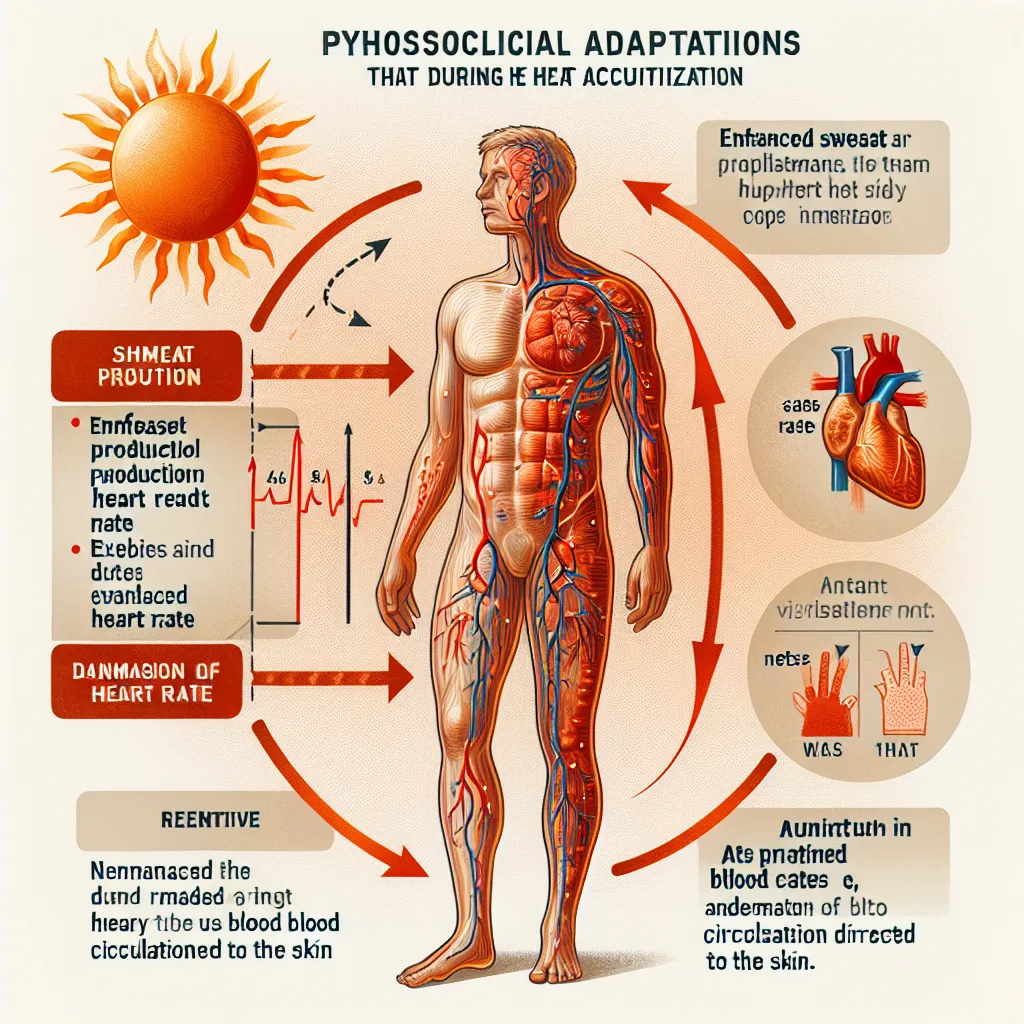Heat acclimatization (noun) /hiːt əˌklʌɪmətaɪˈzeɪʃən/ is a crucial concept in physiology and environmental studies. It refers to the process by which the human body adapts to hot environmental conditions over time. This term is particularly relevant in discussions about climate change, sports performance, and occupational health and safety.
1. Context and Usage
Examples in Context
-
Athletes undergo heat acclimatization before competing in tropical climates.
In this sentence, “heat acclimatization” refers to the intentional process athletes go through to prepare their bodies for performance in hot conditions. -
The study examined the effects of heat acclimatization on workers in foundries.
Here, the term is used in an occupational health context, highlighting its relevance to workplace safety in high-temperature environments. -
Climate change may require widespread heat acclimatization in previously temperate regions.
This example demonstrates the term’s application in discussions about global environmental changes and their impact on human adaptation. -
The military training program includes a two-week heat acclimatization phase.
This usage shows how the concept is applied in military contexts, where personnel may need to operate in various climatic conditions. -
Proper heat acclimatization can significantly reduce the risk of heat-related illnesses.
This sentence emphasizes the health benefits of the process, particularly in preventing heat stress and other temperature-related medical issues.
Common Contexts
Heat acclimatization is frequently discussed in:
- Sports science and athletic training
- Occupational health and safety
- Climate change adaptation strategies
- Military and emergency services preparation
- Medical research on thermoregulation

IELTS Relevance
In IELTS, “heat acclimatization” is most likely to appear in:
- Reading passages on environmental science or sports physiology
- Listening sections discussing climate adaptation or athletic training
- Writing Task 2 essays on topics related to climate change or public health
- Speaking Part 3 discussions about environmental challenges or sports performance
The term has a moderate frequency in academic contexts, making it valuable for candidates aiming for higher band scores, especially in the Academic module.
2. Vocabulary Analysis
Word Structure
- Heat: Base word relating to temperature
- Acclimatization:
- Root: ‘climate’
- Prefix: ‘ac-‘ (meaning ‘to’ or ‘toward’)
- Suffix: ‘-ization’ (indicating a process or state)
Synonyms and Antonyms
Synonyms:
- Heat adaptation
- Thermal acclimation
- Temperature acclimatization
Antonyms:
- Heat intolerance
- Thermal sensitivity
3. Memorization Techniques
Mind Map
Create a mind map with “Heat Acclimatization” at the center, branching out to related concepts:
- Physiological changes (e.g., increased sweating, lowered heart rate)
- Environmental factors (e.g., temperature, humidity)
- Applications (e.g., sports, occupational safety)
- Time frame (e.g., short-term, long-term adaptation)
Storytelling Technique
Imagine a marathon runner preparing for a race in a tropical country. Visualize their training process, gradually increasing exposure to heat, and the body’s adaptive responses. This narrative can help anchor the concept in memory.
4. Practice Exercises
Application Exercise
Write a paragraph describing the importance of heat acclimatization for construction workers in the Middle East. Include at least three physiological adaptations that occur during this process.
IELTS-style Task 2 Question
Some people believe that climate change will require significant adaptations in human physiology and behavior. To what extent do you agree or disagree with this statement?
In your response, consider discussing heat acclimatization as one of the potential adaptations.
5. Conclusion
Understanding “heat acclimatization” is crucial for IELTS success, especially in tasks related to environmental science, sports, or public health. This term not only enhances your vocabulary but also demonstrates an awareness of important physiological processes relevant to current global issues.
We encourage you to practice using this term in your writing and speaking exercises. Share your experiences or questions about learning this concept in the comments below. How might you apply your understanding of heat acclimatization to real-world scenarios or IELTS tasks?